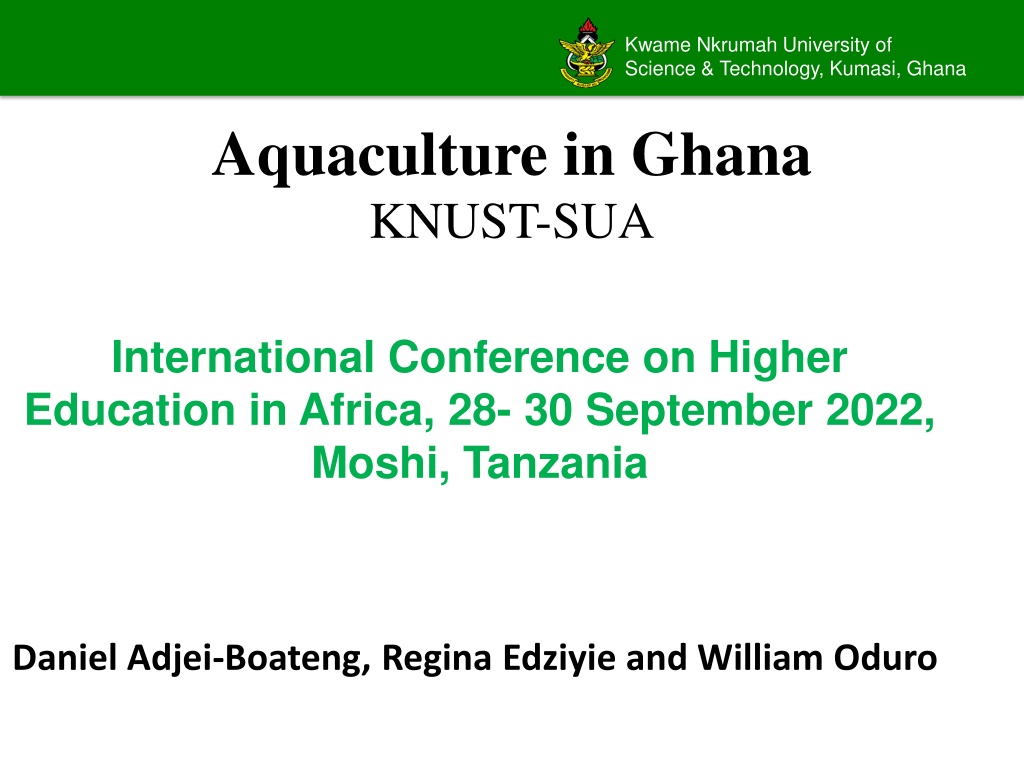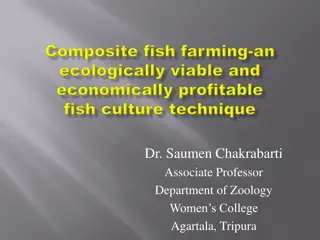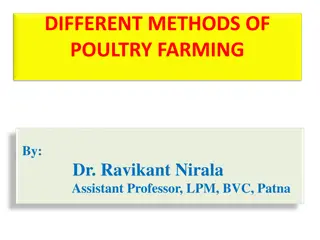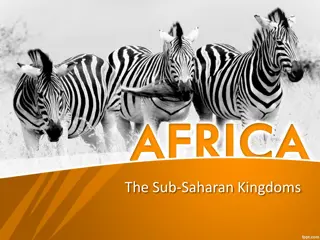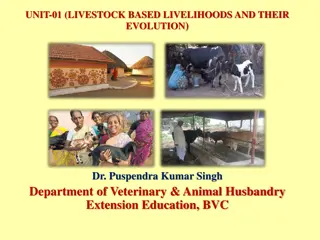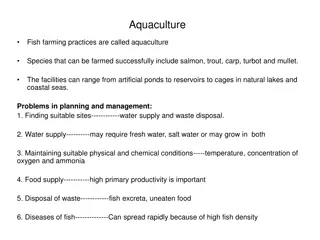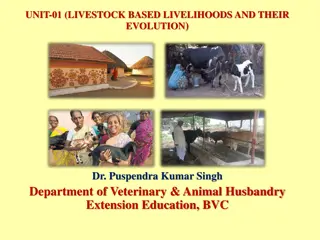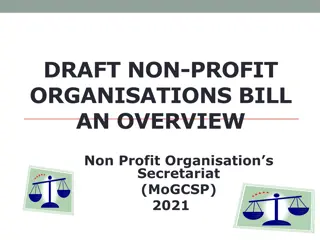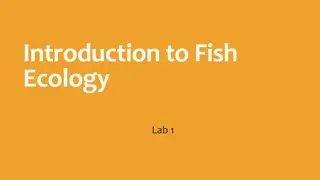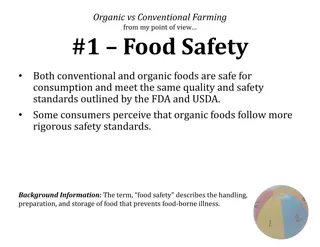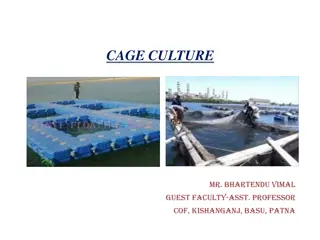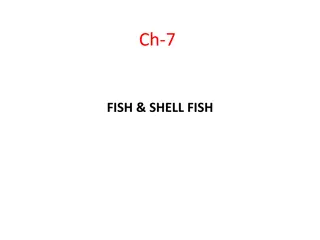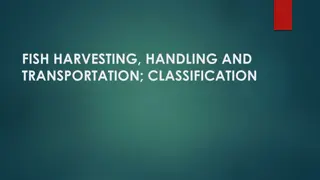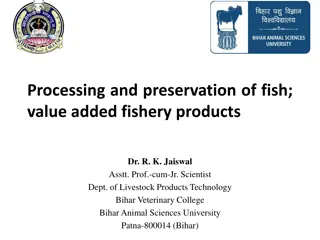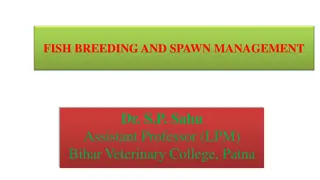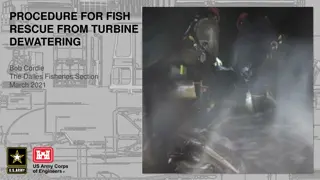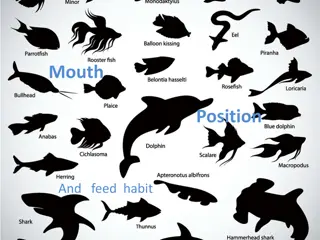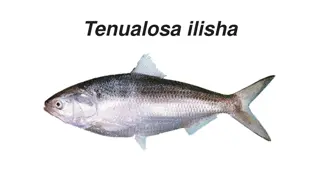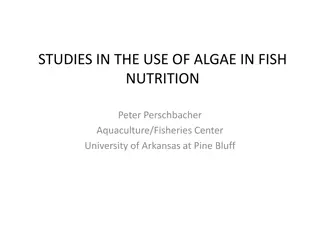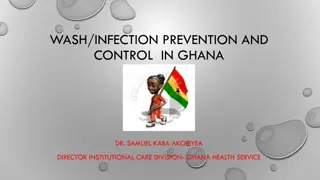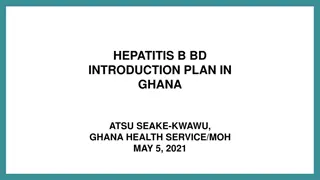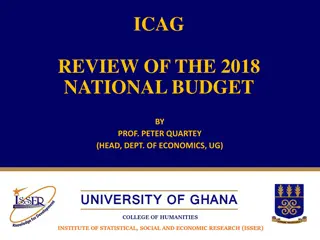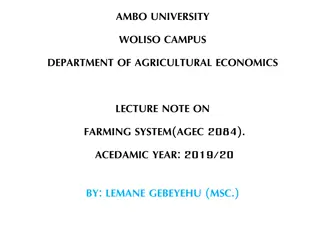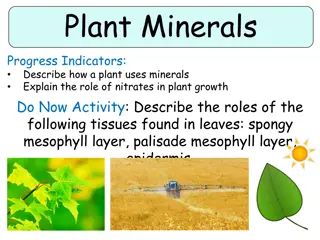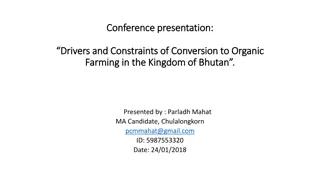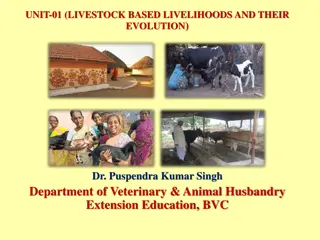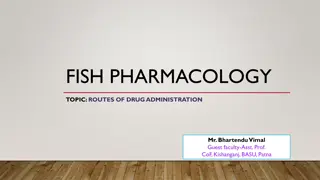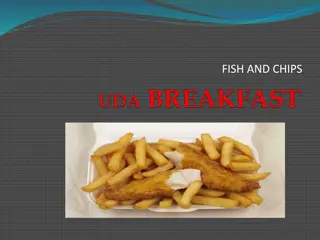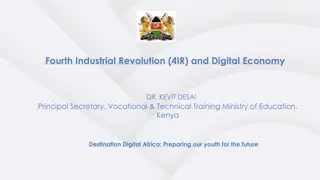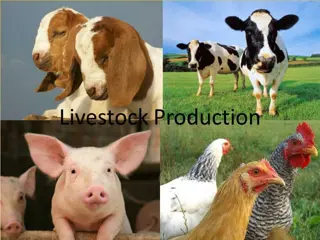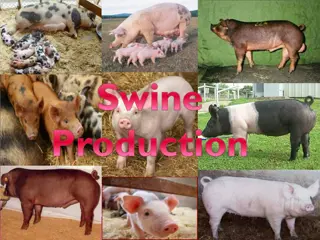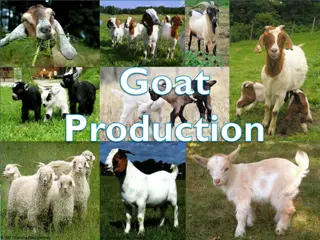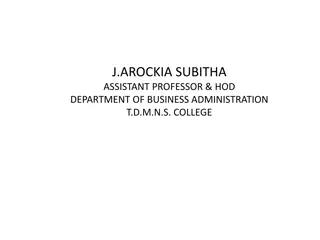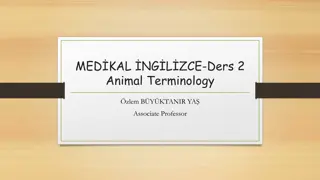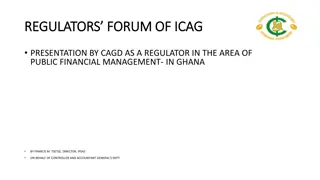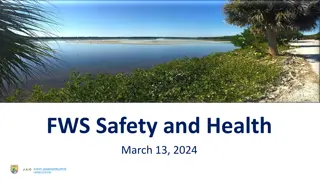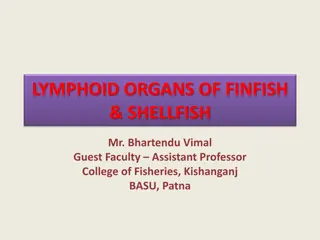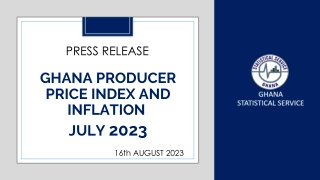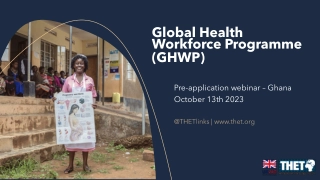Evolution of Fish Farming in Ghana: A Historical Overview
Fish farming in Ghana has a rich history dating back to the 1950s. The industry has evolved significantly over the decades, from traditional methods to modern practices like low-input commercial farming. Despite challenges like lack of technical support, the sector has shown growth with a focus on key species and improved techniques. Initiatives such as catfish tanks, tilapia breeders, and the use of extruded feeds have contributed to the development of aquaculture in Ghana.
Download Presentation

Please find below an Image/Link to download the presentation.
The content on the website is provided AS IS for your information and personal use only. It may not be sold, licensed, or shared on other websites without obtaining consent from the author. Download presentation by click this link. If you encounter any issues during the download, it is possible that the publisher has removed the file from their server.
E N D
Presentation Transcript
Kwame Nkrumah University of Science & Technology, Kumasi, Ghana Aquaculture in Ghana KNUST-SUA International Conference on Higher Education in Africa, 28- 30 September 2022, Moshi, Tanzania Daniel Adjei-Boateng, Regina Edziyie and William Oduro
Fish Farming in Ghana Started in the 1950 70 s Consisted mainly of stocking fish in reservoirs and dugouts. Traditional systems 1. Acadja/atidja (brushparks) in lagoons and reservoirs 2. Clam culture (transplanting/ seeding clams)
Fish Farming in Ghana Early 1980 s,nationwide promotion of fish farming Lack of technical support in all areas: 1. Site selection for pond construction 2. Pond design and construction 3. Pond management 4. Fingerlings 5. Feeds/feeding 6. Harvesting/marketing
Fish Farming in Ghana Low input commercial fish farming in the 1990 s 1. Culture concentrated on 2 main species
South-South Cooperation Production of farm-made feeds Development of alternative species Placement/internships Joint student supervision Grants
Daniel Adjei-Boateng, PhD Department of Fisheries & Watershed Management, Faculty of Renewable Natural Resources Kwame Nkrumah University of Science & Technology Kumasi, Ghana E-mail: daboateng.frnr@knust.edu.gh Tel: +233265633529
